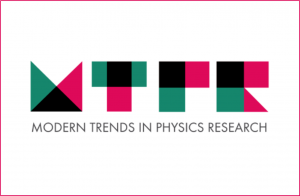New Era of Nuclear Physics
Date, time: January 10, 2024 , 13:00 – 14:00
Speaker: Prof. Marek Lewitowicz (GANIL & NuPECC, France)
MS Teams link
Modern nuclear physics is a field of science rich in discoveries of new phenomena and at the same time having enormous potential for innovative applications. Thanks to the results of new experiments and theoretical models, the foundations of our knowledge about atomic nuclei and their interactions, developed in the mid-20th century, are now being radically modified. The disappearance of well-known and the appearance of new magic numbers for nuclei far from the stability path, the discovery of nuclei with neutron halos and the synthesis of new superheavy elements have changed our vision of atomic nuclei and resulted in the rapid development of new theoretical models. The processes of nuclear fission and nuclear reactions responsible for the formation of elements in space have been studied much more thoroughly. Thanks to the detection of gravitational waves and the observed for the first-time synthesis of heavy elements following the collision of two neutron stars, related scientific disciplines such as cosmology, astronomy, astrophysics, particle physics and nuclear physics developed rapidly. The peaceful applications of nuclear physics in the production of electricity and in nuclear medicine are well known. They are the basis of new technological solutions such as Small Modular Reactors (SMR) or ADS systems (Accelerator Driven Systems). Spectacular results in the treatment of cancer diseases with proton therapy and radioisotopes have opened the way to their rapid development in many countries around the world. New applications in medicine also include alpha particle emitter therapy and the so-called theranostics, i.e. oncological diagnostics and therapy using radioactive isotopes of the same element. The phenomena of nuclear physics are also very important in satellite telecommunications, in the protection and study of works of art, in forensics, in environmental research and in many others. Protection against ionizing radiation, e.g. in the event of excessive radon concentration or in the vicinity of strong radioactive sources, requires modern technological applications. Also, the planned manned trip to Mars will only be possible after solving the problem of sufficient protection of astronauts against cosmic radiation. Large research infrastructures play a special role in the development of the above-mentioned research and applications. They are equipped with modern charged particle accelerator units or nuclear reactors. All leading countries in nuclear science are developing new ambitious infrastructures in this domain. Europe has a unique network of large facilities for research in the field of particle and nuclear physics, including well-known laboratories such as CERN in Switzerland and France, GSI in Darmstadt in Germany, GANIL in Caen in France, LNL in Legnaro and LNS in Catania in Italy, PSI in Villingen, Switzerland, SCK-CEN in Mol, Belgium and ILL in Grenoble, France. All these infrastructures cooperate with each other as well as with other national laboratories within the framework of European integration programs. Today, many laboratories are creating completely new particle accelerators such as FAIR, SPIRAL2, SPES or MYRRHA aimed at producing high-intensity ion beams. The seminar will be devoted to examples illustrating the new era in modern nuclear physics in Europe and its new applications, as well as the role of large research infrastructures in the further development of this scientific discipline.
